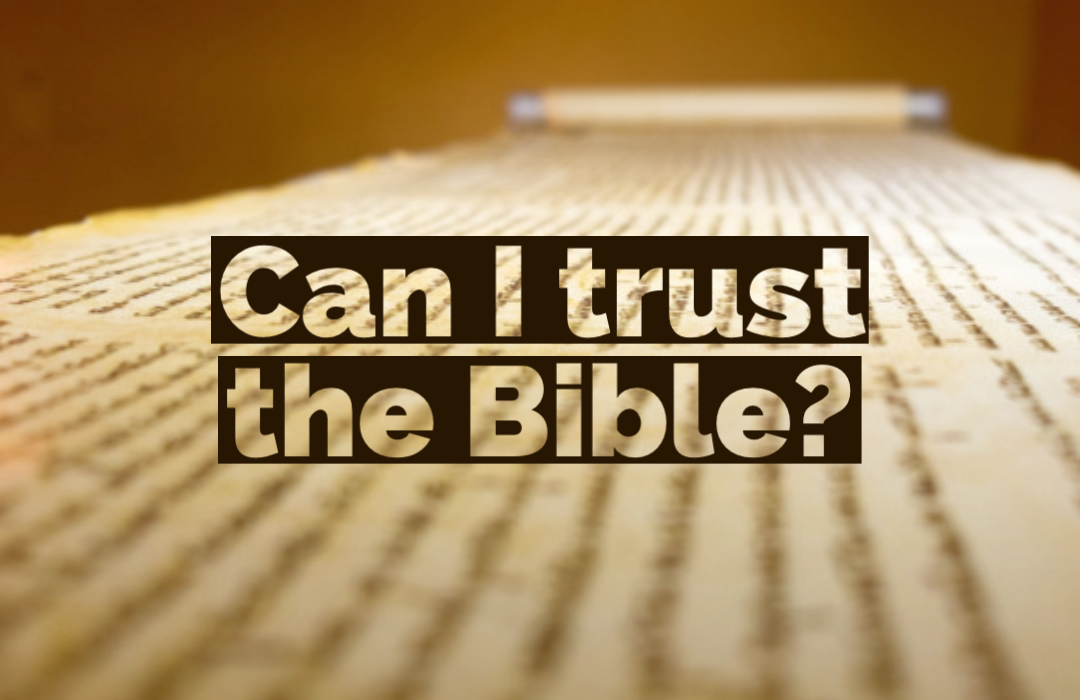Can I Trust the Bible? (Part V): The Old Testament Canon

(This post is Part V in the series “Can I Trust the Bible.” Read the Introduction and Parts I, II, III, and IV.)
So far in this series, we’ve seen that God works powerfully through his Word, graciously communicates with us in human language, commits those words to Scripture, and authenticates this Scripture as meeting the standard of divine origin and authority. In this post, we’ll see that 39 specific documents, each written before the time of Christ, belong in this collection of divinely inspired writings.
Canonicity as Seen in Scripture
Since early on in the history of the nation of Israel, God’s people have set certain writings apart as the Word of God in contrast to the writings of a mere human being. When Moses descended from Sinai to read the covenant to the Israelites, they recognized that the book of the covenant was the Word of God (Exodus 24:7). When Hilkiah the priest found a copy of the first five books of the Bible in the Temple during the reign of Josiah, God’s people accepted this written document as the word of God (2 Kings 23:3). Later, when the Israelites returned to Palestine after decades of exile, they read publicly from the Law and renewed their obedience to what they understood was in fact the Word of God (Nehemiah 9:8).
What these passages show is that the idea of some writings belonging in the canon of Scripture (i.e., meeting the standard of being the very Word of God) is a concept originating in the Bible itself. They also demonstrate that at least the first five books of the Bible (Genesis, Exodus, Leviticus, Numbers, and Deuteronomy) are the authoritative Word of God.
Consensus on the Canon
In the centuries leading up to the time of Christ, a clear consensus had formed about most of the other books belonging in the canon. By the second century B.C., at least one writer referred to a collection he called “the Law and the Prophets,” referring to these books as “Scriptures.” Around the time of Jesus, well-known Jewish philosopher Philo and the famous historian Josephus both mentioned the “holy books” of the Jews, which were scrupulously preserved by scribes and priests. By this time, the Jews had developed a three-part collection of Scriptures known as the Law (Torah), the Prophets (Nabi’im), and the Writings (Ketuvim). This three-fold division is maintained in the order of books in the Hebrew Bible down to this day. Jewish rabbis often refer to the Hebrew Bible as the Tanakh, an acronym based on the first letter of each of these three sections (TaNaK).
What’s most important about this consensus is that Jesus of Nazareth assumes its validity. If Jesus asserts that the 39 books included in the Tanakh are Scripture, then who are we to question? Jesus makes the stunning claim in Luke 24:44 that “everything written” in the “Law of Moses and the Prophets and the Psalms [a common shorthand to refer to the “Writings” based on the fact that the Psalms were the first book in that section]” is fulfilled in him. Obviously, he embraced the commonly held Jewish belief that the Tanakh was in fact the Word of God.
He clearly has in mind the entire Hebrew Bible in Luke 11:50-51 when he mentions the murder of Abel (recorded in the first book of the Tanakh), and the murder of the prophet Zechariah (recorded in the very last book of the Tanakh, 2 Chronicles). Jesus believed that the Old Testament canon includes all 39 books present in the Hebrew Bible (and Protestant versions of the Bible) today.
What about the Apocrypha?
For the most part, each major branch of the Judeo-Christian tradition sees the 39 books of the Old Testament as Holy Scripture. But Roman Catholic and Eastern Orthodox Bibles also include the Apocrypha, books like 1 Maccabees, Judith, and the Prayer of Manasseh. Should these books be included in the canon as well?
There are a lot of detailed reasons why we don’t believe these books belong in Holy Scripture, but to keep things short, I’ll share just a few:
- Jesus clearly believed that the books of the Hebrew Bible were canonical, but the Hebrew Bible does not include apocryphal books. This is reason enough for me to conclude that I should not accept the apocryphal books as Scripture. Jesus would know!
- Apocryphal books do not claim to be the Word of God. Often in Scripture, we read phrases like “The word of the LORD came…” or “the LORD says…” but none of these phrases appear in the apocrypha (Wegner, 117).
- The apocryphal books themselves seem to indicate that God had not given His people any new Scriptures since the Hebrew Bible was compiled. A passage in 2 Esdras, for example, draws a distinction between the books of the Hebrew Bible and other writings of lesser value. The prologue to Ecclesiasticus makes the same distinction.
- Most early church fathers did not accept the Apocrypha as canonical. Melito of Sardis, Origen, Cyril of Jerusalem, Athanasius, and Jerome each made a clear distinction between the apocryphal books and the canonical Hebrew Bible.
The apocryphal books are readily available to anyone who wants to read them. If you are interested in finding out more, I would encourage you to find a translation of these documents and read them for yourself. I believe you’ll see that, helpful though they may be, they do not meet the standard of being the written Word of God.
More in Blog
July 19, 2022
5 Ways to Discourage the New Associate PastorJune 28, 2022
Roe v. Wade Was Overturned! Now What?January 3, 2022
"But when you fast..."